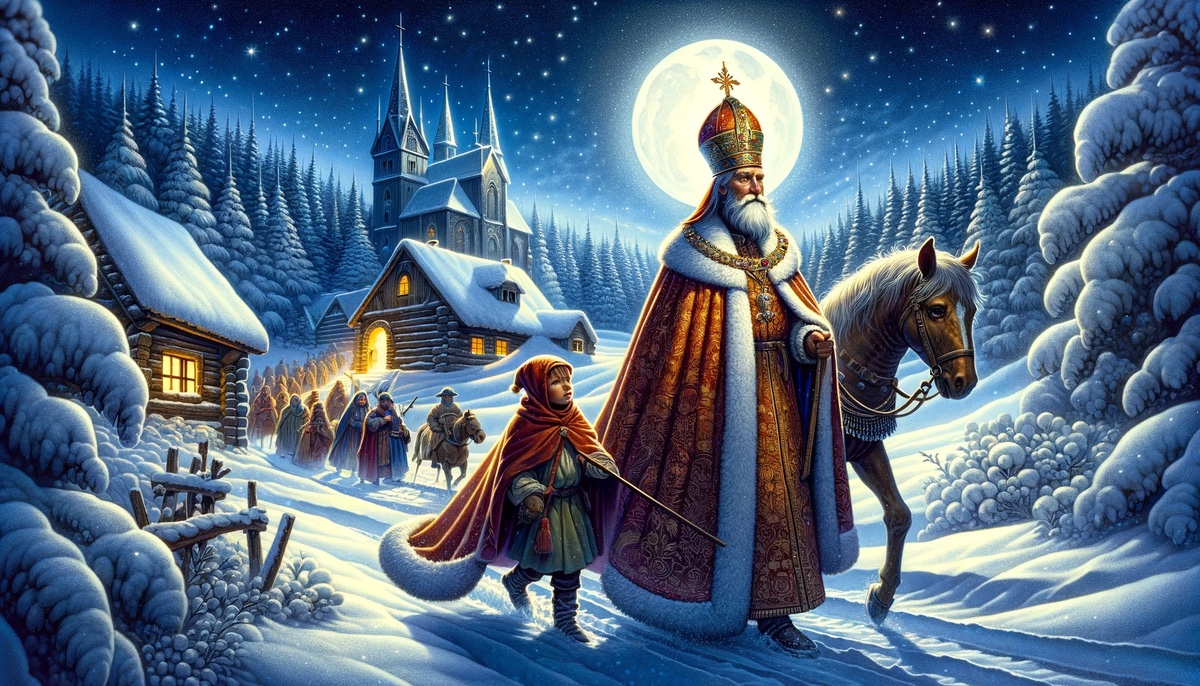
“Good King Wenceslas,” a beloved Christmas carol, weaves a tale of kindness, courage, and humanity against a backdrop of a harsh winter. The carol narrates the story of a noble king, Wenceslas, who sets out to help a poor peasant on the Feast of Stephen, braving the biting cold of a deep winter. The song captures the essence of selflessness, as King Wenceslas leads his page through the snowy terrain, his footprints providing a path and hope in the frigid weather. This inspiring narrative is drawn from the life of the real Saint Wenceslaus I, Duke of Bohemia, a figure known for his extraordinary kindness and revered in Czech history as Svatý Václav.
In 1853, the carol was given its poetic form by the English hymn writer John Mason Neale, with musical contributions from his editor, Thomas Helmore. It first appeared in “Carols for Christmas-Tide,” capturing the hearts of many. Neale’s lyrical adaptation was ingeniously set to the melody of a 13th-century spring carol, “Tempus adest floridum” (“The time is near for flowering”), which had been included in the 1582 Finnish collection “Piae Cantiones.”
“Good King Wenceslas” stands out not just as a carol but as a narrative that encapsulates the spirit of giving and the warmth of human kindness, resonating with the message of Christmas. The melody, rooted in history, and the lyrics, brimming with compassion, come together to form a timeless Christmas anthem that continues to inspire and uplift.
Good King Wenceslas looked out
On the feast of Stephen
When the snow lay round about
Deep and crisp and even
Brightly shone the moon that night
Though the frost was cruel
When a poor man came in sight
Gath’ring winter fuel
“Hither, page, and stand by me
If thou know’st it, telling
Yonder peasant, who is he?
Where and what his dwelling?”
“Sire, he lives a good league hence
Underneath the mountain
Right against the forest fence
By Saint Agnes’ fountain.”
“Bring me flesh and bring me wine
Bring me pine logs hither
Thou and I will see him dine
When we bear him thither.”
Page and monarch forth they went
Forth they went together
Through the rude wind’s wild lament
And the bitter weather
“Sire, the night is darker now
And the wind blows stronger
Fails my heart, I know not how,
I can go no longer.”
“Mark my foteps, my good page
Tread thou in them boldly
Thou shalt find the winter’s rage
Freeze thy blood less coldly.”
In his master’s steps he trod
Where the snow lay dinted
Heat was in the very sod
Which the Saint had printed
Therefore, Christian men, be sure
Wealth or rank possessing
Ye who now will bless the poor
Shall yourselves find blessing
A traditional choir:
Jane Seymour and the Mormon Tabernacle Choir:
The Mannheim Steamroller version:




